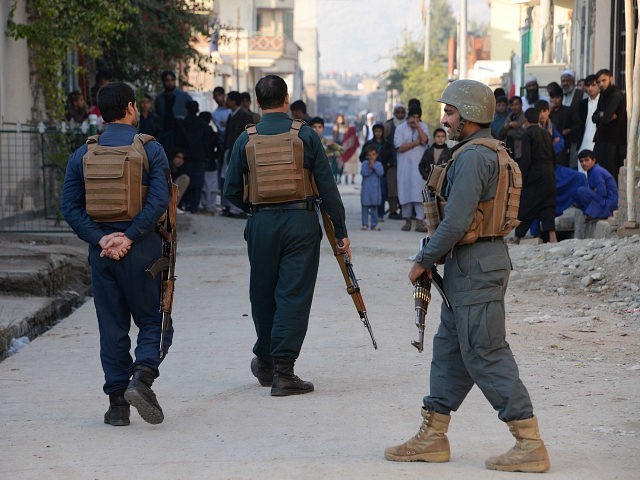Key national security and anti-fraud safeguards may be wiped out in the rush to processing pending U.S. special visa applications from Afghans who aided America’s war effort, Dan Cadman, an immigration law enforcement expert at the Center for Immigration Studies (CIS).
Democrats have introduced three bills to amend the Afghan Allies Protection Act of 2009 (AAPA) that makes Special Immigrant Visas (SIVs) available to Afghans who fear retaliation against them and their families for working for the U.S.
The pending amendments seek to speed up the lengthy and backlogged SIV process and help as many applicants as possible get out of Afghanistan before the U.S. military pulls out by the end of August.
Many Afghans aided the U.S. during the nearly two-decade old war by serving as drivers, engineers, security guards, fixers, contractors, and serving in other capacities on behalf of the U.S.
Dan Cadman, an immigration law enforcement expert at the Center for Immigration Studies (CIS), wrote in a report late last week:
Fearing a collapse of even nominal law and order after the withdrawal of U.S. troops, members of Congress have introduced bills designed to hasten the completion of pending SIV applications and the adjudication of new applications; to increase the number of SIV slots beyond those already available; and even expand the potential pool of applicants by eliminating key criteria required to apply, even though the existing reserve of available SIV numbers is far from exhausted.
He blamed the slow SIV process that has required some Afghan applicants to wait for years “on operational difficulties in completing adequate medical and security vetting,” adding:
The vetting has been further complicated by instances of complicity in which Afghans employed by the U.S. have been discovered to have links and loyalties to the Taliban and who have used their positions and access to report on troop movements, vulnerabilities, etc.
Despite the risks, Cadman noted that lawmakers want to “eliminate important safeguards built into the [AAPA] law over the years” by cutting corners on national security, fraud, and public health, potentially resulting in any Afghan becoming eligible for an SIV.
The amendments would end the precondition that applicants show that they performed “sensitive and trusted work” to qualify, the expert wrote. They would also do away with the stipulation that applicants prove they are at risk if they stay in Afghanistan.
The bills would nearly double the number of available visas despite the looming U.S. military withdrawal, expected by the end of August, and backlog cases.
Moreover, the requirement for applicants to have a medical screening for contagious diseases before approval and entry would end.
President Joe Biden is scrambling to evacuate the existing SIV applicants (18,000) and family members (50,000) who choose to wait for the U.S. to process their visas outside their country.
Although the administration is having trouble with evacuating the existing tens of thousands of Afghan SIV applicants and their families, the administration is considering granting 2,000 additional visas to women vulnerable to reprisals from the Taliban after the U.S. military leaves.
Last week, the president told reporters his administration had identified U.S facilities outside the continental United States and third countries to host the evacuees.
Biden vowed to begin relocation flights this month for applicants who choose to wait for the visa process outside Afghanistan.
He did not explicitly say which countries or territories would house the Afghans.
However, a bipartisan group of lawmakers proposed housing some of the Afghans at the island of Guam, a U.S. territory outside the continental U.S., while they wait for their visas.
The governor of Guam is open to the idea despite instances in which officials linked Afghans who worked for the U.S. to the Taliban.
Some officials have expressed concerns that if Afghan visa applicants end up in U.S. territory, it would be impossible to deport them if the United States denies their SIV applications.
The lengthy SIV process may prevent some third countries from taking in Afghan evacuees.
There would be “significant pressure from these third countries to ensure that they are permanently resettled quickly rather than see them become a resource drain, and potentially a public safety and national security risk, to the host country,” Cadman added.

COMMENTS
Please let us know if you're having issues with commenting.